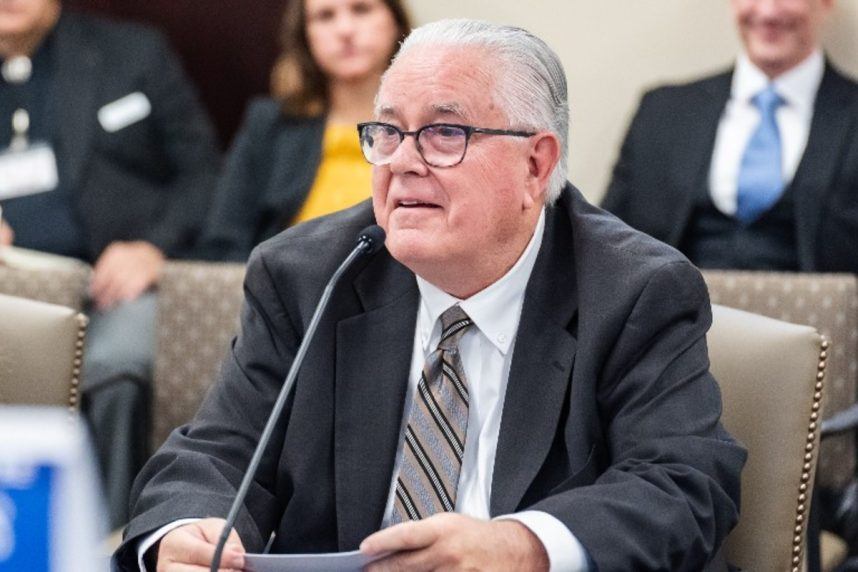Pennsylvania Gaming Control Board Continues Fight Against Prediction Markets
Posted on: October 8, 2025, 02:55h.
Last updated on: January 6, 2026, 09:06h.
- Pennsylvania’s top gaming regulator is no fan of prediction markets offering sports contracts
- Kevin O’Toole is calling on the state’s congressional delegation to urge the CFTC to prohibit sports contracts on trading platforms it regulates
The Pennsylvania Gaming Control Board (PGCB) is warning the commonwealth’s congressional delegation about the state gaming regulatory agency’s many concerns regarding prediction markets offering trading involving sports.

Kevin O’Toole has served as executive director of the PGCB for more than 16 years. A former deputy attorney general with the New Jersey Division of Gaming Enforcement (NJDGE) and executive director of the Oneida Indian Nation Gaming Commission, O’Toole has almost three decades of gaming industry experience.
He believes the rapid emergence of prediction markets entering the sports gambling realm is a grave threat to the success of Pennsylvania’s “carefully crafted sports wagering market.” Such online wagering exchanges, which originally dealt in political outcomes and cultural events, have recently engaged in offering supposedly financial derivative markets based on sports outcomes.
Online prediction market exchanges, with Kalshi a prominent example, claim to be regulated by the Commodity Futures Trading Commission (CFTC) because their event contracts are financial derivatives and therefore claim not to be gambling.
Conflicting Regulations
In his letter addressed to US Sens. John Fetterman (D) and Dave McCormick (R), along with 17 US representatives, O’Toole asks the Pennsylvania congressional delegation to urge the CFTC to consider the many conflicts that allowing purported sports futures trading causes for state-regulated, legal sports betting.
These markets claim primary regulatory oversight falls under the federal CFTC. This assertion creates a direct conflict regarding regulatory authority, pitting federal derivatives law against Pennsylvania’s established power to regulate gambling activities within its borders and criminalize illegal gambling,” O’Toole wrote.
With prediction futures markets, online platforms facilitate the buying and selling of event outcomes.
For instance, a user can buy shares of Wednesday night’s New York Yankees game against the Toronto Blue Jays. Yankees’ win shares are trading at 61 cents. Shares of a Blue Jays victory are 39 cents. Winning shares are redeemed at $1. A $100 bet on a Yankees win would return $161 for a net payout of $61. Kalshi makes money by charging an assortment of deposit, withdrawal, and trading fees.
The same $100 Yankees bet on DraftKings tonight would return the bettor $155.55, for net winnings of $55.55. DraftKings has the Yankees favored at -180.
If the Blue Jays win, DraftKings, at least on that bet, would win, too. DraftKings’ $100 in revenue would then be subject to Pennsylvania’s 36% sports betting revenue tax. Kalshi pays no state taxes on its contract revenue to Harrisburg.
Responsible Gaming
In his letter, O’Toole points out that, unlike the PGCB, the CFTC has little oversight of the wagering activities happening on prediction markets.
With all due respect to the CFTC, it would take years for them to create the regulatory system and oversight that state gaming authorities have in place, which would create a redundance for a system that already exists and works exceptionally well. The CFTC is a financial market regulator, lacking the specific expertise and historical mandate for overseeing consumer gambling activities,” O’Toole said.
O’Toole says CFTC-governed prediction markets also present problem gambling concerns. Most prediction markets, including Kalshi, allow anyone aged 18 and up to participate. Most states with legal sports betting require bettors to be at least 21.
Prediction markets also aren’t required to offer responsible gaming tools, display resources like 1-800-GAMBLER, and face little financial penalty for not adhering to statutory and regulatory requirements that Pennsylvania’s legal, regulated operators do.
O’Toole was to testify before the CFTC’s Prediction Markets Roundtable in March before that session was abruptly canceled. He nonetheless submitted written testimony to the CFTC urging the commission to prohibit its regulated trading platforms from allowing markets involving the outcomes of sporting events.
No comments yet